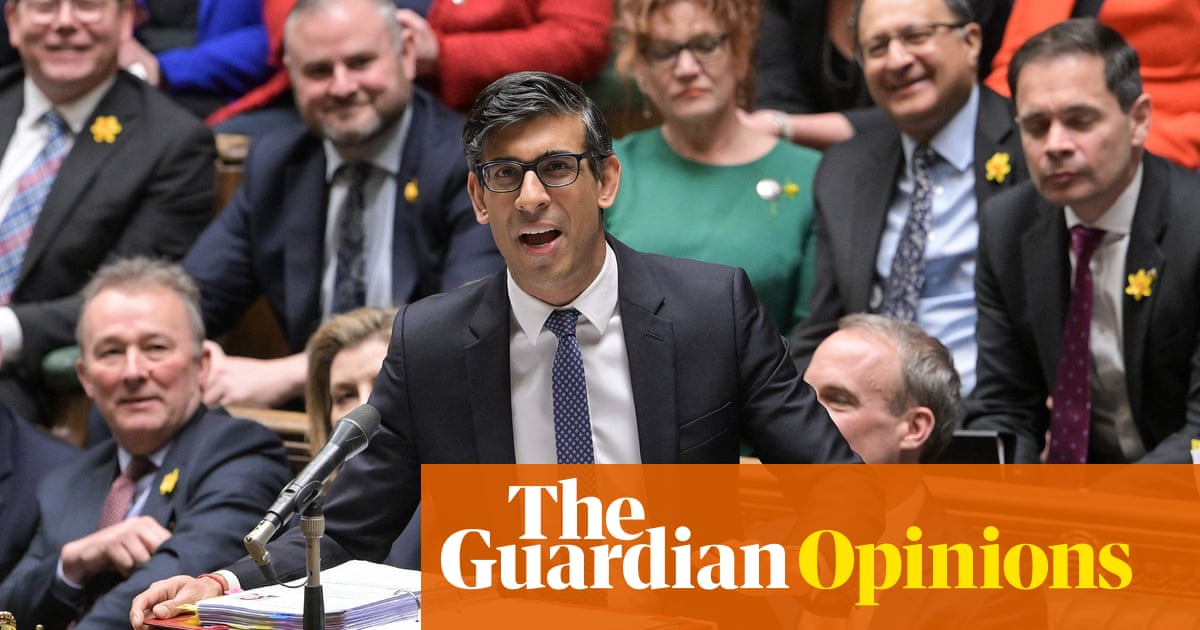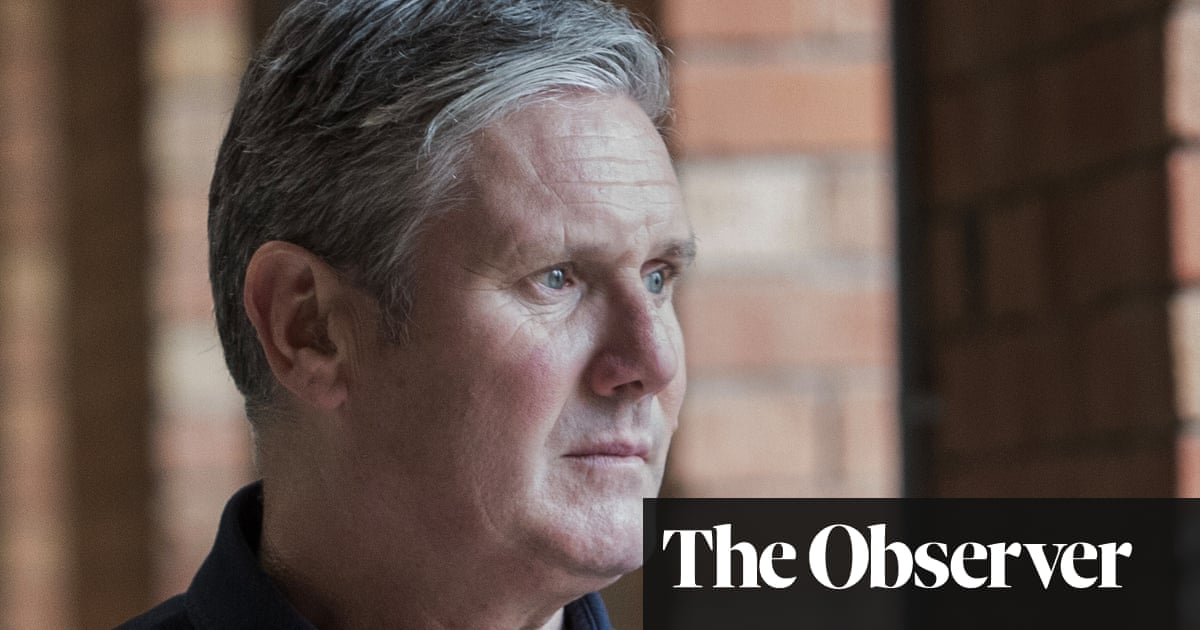
Keir Starmer has ordered the Labour party to prepare to fight an early general election in May 2023 as he pledges today to “take off the mask” and show the British people why he should be the next prime minister.
After a year as leader – and with some in the party worried that he has yet to define a clear personal vision around which to rally MPs and activists – Starmer told the Observer he has found it deeply frustrating not being able to meet voters and campaign around the country. “We’ve been rebuilding the Labour party and demonstrating that we are under new leadership,” Starmer said. “But it has been frustrating to spend the first year as leader unable to make a speech to a live audience or shake a single voter’s hand.”
He is now determined to take the fight to Boris Johnson with a new agenda to root out economic inequalities, redefine the purpose of public services and create secure, high-skilled jobs across the country, in the full expectation that Johnson will “go early” and trigger a general election in two years.
“I’m now looking forward to taking the mask off and opening the throttle. I’ve instructed the party to be election ready for 2023. The next election, whenever it comes, will be a once in a lifetime chance to get Britain working for everyone,” Starmer said.
The Labour leader is convinced that Johnson is gearing up for a May 2023 contest in a short electoral window of opportunity after the economy has undergone an expected, sharp rebound from the Covid crisis but before it begins to flatline.
The Office for Budget Responsibility recently forecast economic growth would hit 4% this year, rising to 7.3% in 2022, before dipping to 1.7%, 1.6% and 1.7% in the subsequent three years.
Johnson will push ahead with legislation to abolish the 2011 Fixed Term Parliaments Act – which created a five-year period between elections and limited a prime minister’s ability to decide when to go the country – in the Queen’s speech on 11 May. Labour will back the abolition, although it will allow Johnson to choose the most politically favourable moment to hold an election. Starmer told members of his shadow cabinet more than three weeks ago that he wanted to move on to a pre-election footing, believing that doing so would energise the party and focus minds on five key themes he wants to define the second phase of his leadership. There are also fears at the top of the party that Labour could suffer disappointments in next month’s local elections which could trigger new doubts about Starmer’s leadership.
One shadow minister said that it was vital that the whole party got behind the leader after a uniquely difficult year, rather than allow a negative narrative to build up around him. “There is a danger with some people beginning to say he is some sort of Theresa May mark two. That really is not the case. He is not only a powerful intellectual force but he is incredibly down to earth and capable of connecting with voters. We have just get to him out there and sell him more.”
Writing in the Observer Starmer outlines his broad thinking, saying he wants to change the entire purpose of the economy, so it is no longer geared to short-term shareholder gain, but rather to placing “long-term shared security, justice and economic and social prosperity at the heart of decision making”.
With an emphasis on “jobs, jobs, jobs” Starmer’s key themes will include a radical reshaping of the purpose of public services so their central mission becomes “preventative” rather than reactive.
The shadow health secretary Jonathan Ashworth is already examining plans for a wellbeing act similar to that operating in New Zealand, where government decisions are judged against their effect on health, fitness and future wellbeing.
Other themes around which he plans to shape an eventual election manifesto include revolutionising education and skills training, to ensure quality jobs are available in all corners of the country, as well as devolution of powers and plans to end the “toxic way public life is conducted” by promoting a new, optimistic patriotism.
While Starmer was credited early on in the pandemic with restoring a sense of competence to the leader’s office, and for impressive performance at prime minister’s questions, he and Labour have recently slipped back in the polls, fuelling a sense of frustration in the party about lack of progress.
Friends of Starmer say he is fully aware that his party is “not yet near where it needs to be”. But they say he believes the prospect of an early general election will focus minds on the need to stand together against the Tories. The Observer understands Starmer is not planning any imminent reshuffle.
While his MPs for the most part remain publicly loyal, some leftwing groups linked to Labour are beginning to express frustration. In an article to mark the end of Starmer’s first year Neal Lawson, director of the centre-left pressure group Compass, which wants Labour to form a progressive alliance with other parties, writes: “Today there is little buzz around Labour. The easy task of not being Jeremy Corbyn was achieved but what now? Where are the ideas, alliances and forces not just to win office but to transform our society?”
This weekend a survey of Tory activists for the ConservativeHome website shows almost 80% of Conservative supporters believe the party will be in government again after the next election. The website’s editor, the former MP Paul Goodman, said he was convinced that election would come early, in just over two years’ time.
“I’ve believed from the moment that Rishi Sunak sat down after his budget speech that the government’s game plan is a May 2023 election.”
“First, scrap the Fixed Terms Parliament Act. Next, hope that growth is higher than expected. If so, postpone that corporation tax hike – indeed, cut some taxes instead. Finally, dash for the polls.”












